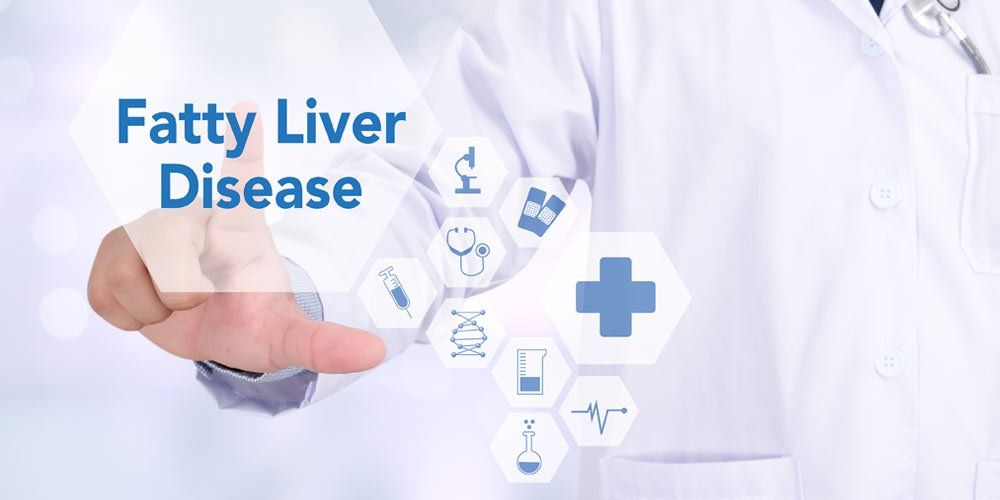What is Fatty Liver Disease?
A normal, healthy liver will have fat in it, but when the fat makes up more than 5 percent of the organ, the individual has fatty liver disease. Hepatic steatosis, the official name for the condition, can have many causes, and it can become a life-threatening health problem that leads to cirrhosis or liver cancer. Medical research by scientists in Israel now suggests fatty liver may begin because of an immune system issue, and it may rely on the immune system to repair the problem even if it was not the cause.
The health problem has multiple stages. If the liver has a build-up of fat, it is known as steatosis and usually causes no symptoms.
Non-alcoholic steatohepatitis (NASH) means the liver has become inflamed. The patient will experience noticeable symptoms when this occurs. More advanced stages of fatty liver begin when scar tissue develops in the inflamed areas. As the condition advances beyond the scar tissue stage, permanent damage begins and increases the risk of life-threatening problems.
Common Symptoms of Fatty Liver
The earliest stages of fatty liver disease do not cause symptoms or may cause symptoms too mild to identify as a health concern. The number of health problems and their severity will increase as the disease progresses.
In most cases patients will discover they have a fatty liver from a routine blood test. Elevated liver enzymes are a conclusive sign that the liver is damaged.
Common symptoms patients may feel with fatty liver include:
- Fatigue
- Upper right abdomen discomfort or pain
- Swelling in the abdomen
- Reddening of the palms
- Enlargement of the spleen
- Enlarged blood vessels at the skin surface
- Jaundice (yellowing of eyes and skin)
Common Causes of Fatty Liver
Many behaviors and other health concerns exist in people who develop fatty liver. Despite this, the risk for the condition does not happen to only patients with identifiable causes. Cases of fatty liver can occur in children and individuals with none of the common concerns associated with the disease. Increased risk applies to people that meet one or more of the following conditions.
- Require the use of insulin due to a medical condition like diabetes
- Have high blood pressure
- Have high cholesterol
- Obesity, or being overweight with much of the weight carried around the waist
- Are 50 or over
- Are smokers or a recent former smoker
- Have an underactive thyroid
How the Medical Community Treats Fatty Liver
Doctors do not have a specific medical treatment for fatty liver. The suggested remedies include treating diseases like diabetes and high blood pressure, which increase the risk factor for developing liver complications. Doctors will also recommend the patient lose weight and exercise more. A liver transplant could become necessary if the condition becomes advanced.
In studies on immune system function and liver health, the researchers discovered that a cell in the liver promoted inflammatory behavior in the lymph node T-cells (white blood cells) that the body relies on for a healthy immune system. The aggressive behavior resulted in tissue damage that reduced the ability of the white blood cells. The researchers believe that the findings show that immunotherapy could play a role in resolving fatty liver disease. The scientists have not developed a method of treatment based on the study but have continued their research.
Holistic Natural Remedies for Non-Alcoholic Fatty Liver
The role of the liver to aid in the digestion of food and filter out toxins makes it very responsive to herbal remedies. All products consumed will go through the liver, so the use of beneficial supplements that boost liver health can begin helping quickly. Developing good health habits and implementing alternative treatments that strengthen and support the immune system are also options that promote liver health. Some natural health alternatives include:
- Add ginger to your daily diet
- Drink more green tea
- Consume more supplements and foods containing omega-3 fatty acids
- Use resveratrol supplements made from the skin of red grapes
- Avoid smoking cigarettes
- Do not drink alcohol
- Exercise daily
- Avoid sugary beverages
- Drink more coffee
- Review the side effects of prescription and OTC medications and avoid (when possible) those that may harm the liver
- Get acupuncture treatments
- Have regular chiropractic adjustments
See Your Local Holistic Practitioner. These can include muscle testers like Applied Kinesiologists and Nutrition Response Testers, many of whom are Chiropractors. You can also consider Functional and Integrative Medical Practitioners, many of whom are holistic doctors. Depending on your symptoms, trained Dietitians and Nutritionists can also be an option.
Adding
whole food supplements to your treatment plan adjusts the imbalances in your body. Being under a professional's care will help eliminate trial and error, and wasted money spent on remedies that may not be appropriate for your exact illness. Most holistic practitioners offer a free consultation, so seeing two or three is an option. It would be wise to start here.
Holistic remedies
can help people maintain liver health to avoid conditions like fatty liver. Patients with health concerns can choose to follow alternative treatment or pair the homeopathic options with traditional care. Natural remedies and healing methods will not counteract medications or treatments offered by medical doctors. People with suspected liver disease should undergo medical testing first to rule out conditions like cancer or hepatitis that may require unique treatments to avoid life-threatening risks.
Additional Resources
- Non-alcoholic Fatty Liver Disease (NAFLD) - National Health Service
- Nonalcoholic Fatty Liver Disease Overview - Mayo Clinic
- How do doctors treat NAFLD? - National Institute of Diabetes and Digestive and Kidney Disease
- Immune Imbalances in Non-Alcoholic Fatty Liver Disease - National Library of Medicine National Center for Biotechnology Information
- Could the Immune System Play a Role in Treating NAFLD? - British Liver Trust
- Six Alternative Treatments For Fatty Liver - SteptoHealth
- Recent Advances in the Herbal Treatment of Non-Alcoholic Fatty Liver Disease - National Library of Medicine National Center for Biotechnology Information



